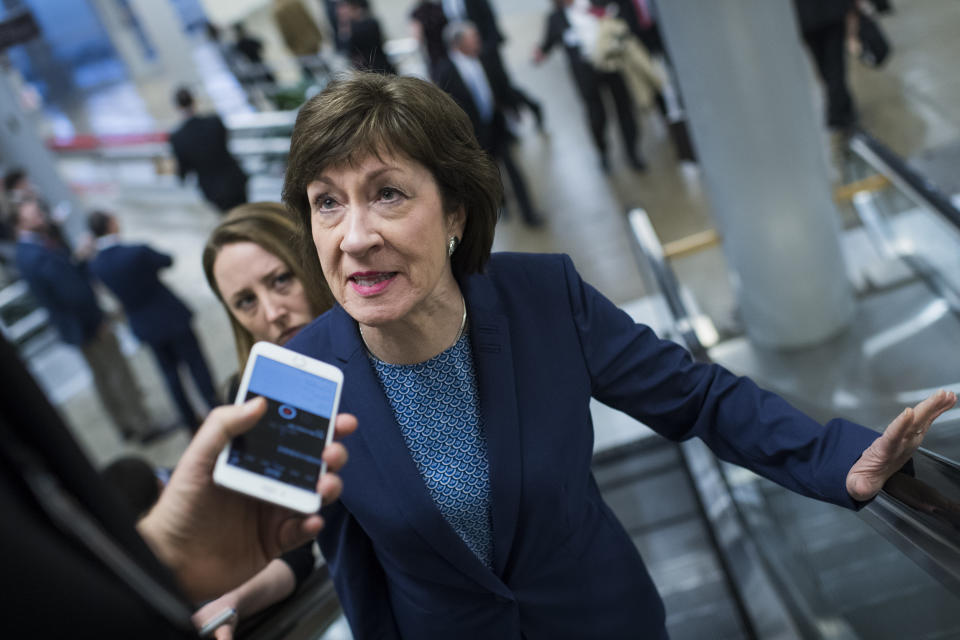In the U.S. Senate, talk of a splinter caucus to force compromise
A former adviser to Evan McMullin’s independent presidential campaign in 2016 is now in talks with a small group of U.S. senators to form a new caucus that would influence who is chosen as majority leader in 2019.
“This group could say to the Republicans, ‘We’ll caucus with you … [but] we will not do that unless it’s not Mitch McConnell. Instead we’d like to have Susan Collins,’” said Joel Searby, a political operative from Florida, in an interview on Yahoo News’ “The Long Game” podcast.
The notion of pushing for Collins, a Maine Republican who is one of the most moderate members of the Senate, rather than McConnell, a Kentucky Republican who has held the majority leader post since 2015, would be to nudge the Senate toward bipartisan compromise rather than gridlock.
Similarly, Searby said, the group of three to five senators could tell Democrats they would vote with them on most issues in exchange for the selection of a more moderate Democrat like Sen. Michael Bennet of Colorado, rather than the current minority leader, Sen. Chuck Schumer of New York.
“The grand idea is that it could change the culture of how the Senate works by saying there is now a third bloc that will stick together on nearly all issues,” Searby said.
Issues such as health care, the national debt and infrastructure all require both Republicans and Democrats to work together to find solutions, Searby said, and such a caucus of independent-minded senators would insist that the Senate do so.

“Of course they need to have freedom to break off on issues that matter to them personally,” he said. “They would probably be free to deal differently on social issues but they would stick together on those things and force both sides to come together.”
Searby was active in Florida politics as a Republican consultant until the 2016 cycle, when his involvement with McMullin’s campaign thrust him into the national political game.
Searby would not comment on which senators he and others are attempting to work with. But one chief of staff to a Democratic senator confirmed that he has had conversations with Searby.
While many senators say they would like to see more bipartisanship, most are probably afraid of the consequences of going against their party leadership.
Refusing to vote for a member of one’s own party for majority leader would be seen as a betrayal, subject to punishment in the form of a primary challenge.
The next opportunity for any splinter caucus to try to force compromise in the Senate would be next January, after the midterm elections, when the first session of the 116th Congress will be convened and new leadership elections will be held. Any impact on those elections would require extensive planning and coordination that would begin weeks, if not months, before those leadership elections.
Read more from Yahoo News:



